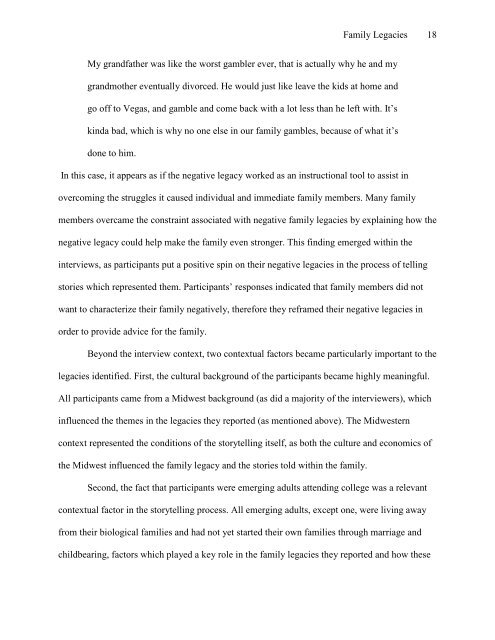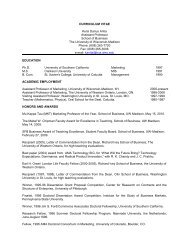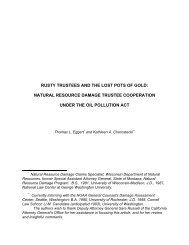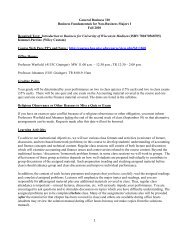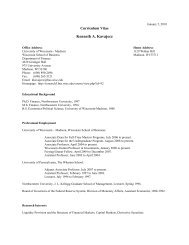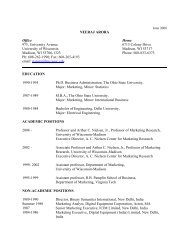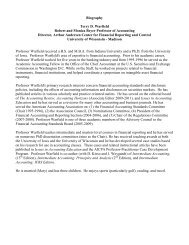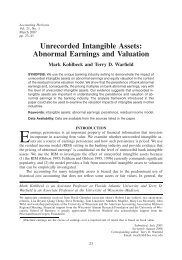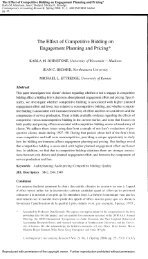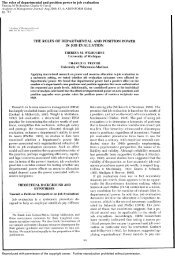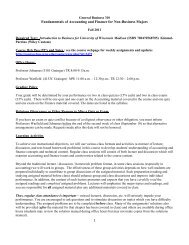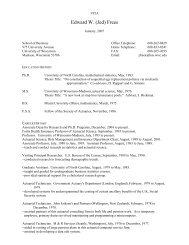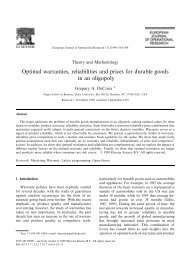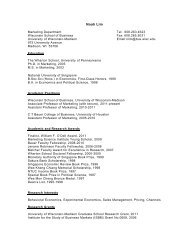family legacies - Wisconsin School of Business - University of ...
family legacies - Wisconsin School of Business - University of ...
family legacies - Wisconsin School of Business - University of ...
Create successful ePaper yourself
Turn your PDF publications into a flip-book with our unique Google optimized e-Paper software.
Family Legacies<br />
My grandfather was like the worst gambler ever, that is actually why he and my<br />
grandmother eventually divorced. He would just like leave the kids at home and<br />
go <strong>of</strong>f to Vegas, and gamble and come back with a lot less than he left with. It’s<br />
kinda bad, which is why no one else in our <strong>family</strong> gambles, because <strong>of</strong> what it’s<br />
done to him.<br />
In this case, it appears as if the negative legacy worked as an instructional tool to assist in<br />
overcoming the struggles it caused individual and immediate <strong>family</strong> members. Many <strong>family</strong><br />
members overcame the constraint associated with negative <strong>family</strong> <strong>legacies</strong> by explaining how the<br />
negative legacy could help make the <strong>family</strong> even stronger. This finding emerged within the<br />
interviews, as participants put a positive spin on their negative <strong>legacies</strong> in the process <strong>of</strong> telling<br />
stories which represented them. Participants’ responses indicated that <strong>family</strong> members did not<br />
want to characterize their <strong>family</strong> negatively, therefore they reframed their negative <strong>legacies</strong> in<br />
order to provide advice for the <strong>family</strong>.<br />
Beyond the interview context, two contextual factors became particularly important to the<br />
<strong>legacies</strong> identified. First, the cultural background <strong>of</strong> the participants became highly meaningful.<br />
All participants came from a Midwest background (as did a majority <strong>of</strong> the interviewers), which<br />
influenced the themes in the <strong>legacies</strong> they reported (as mentioned above). The Midwestern<br />
context represented the conditions <strong>of</strong> the storytelling itself, as both the culture and economics <strong>of</strong><br />
the Midwest influenced the <strong>family</strong> legacy and the stories told within the <strong>family</strong>.<br />
Second, the fact that participants were emerging adults attending college was a relevant<br />
contextual factor in the storytelling process. All emerging adults, except one, were living away<br />
from their biological families and had not yet started their own families through marriage and<br />
childbearing, factors which played a key role in the <strong>family</strong> <strong>legacies</strong> they reported and how these<br />
18


